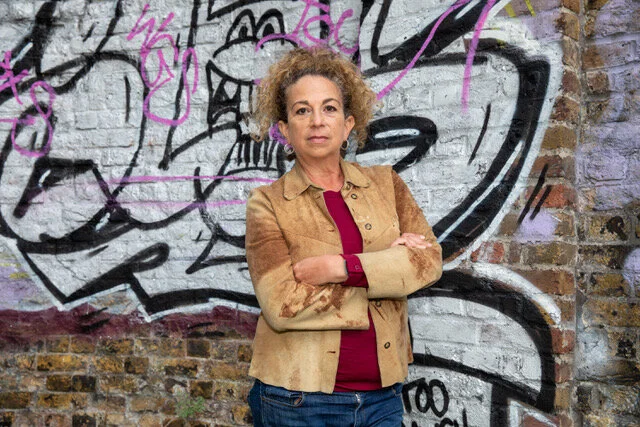Trini's Roffey & Persaud Join Global Literary Luminaries
When the Trinidadian writing community congratulated Monique Roffey and Ingrid Persaud, both Trinidadians for best novel and best debut novel respectively by the Costa Book Awards, we speculated if there was something in the ether that was producing a surfeit of imaginative women’s writing out of the Caribbean.
The Costa Book Awards are among the UK's most prestigious book prizes for high literary merit and a more populist literary prize than the Booker. With this win, Roffey and Persaud from this small twin-island state have joined literary luminaries now fellow prize winners, standing alongside Kazuo Ishiguro, Ian McEwan, Salman Rushdie, William Trevor, Ali Smith, Hilary Mantel, Paul Theroux, and Hanif Kureshi.
What is extraordinary is the recent renaissance of women writers out of Trinidad from Vahni Capildeo, (winner of the Forward Prize) to Shivani Ramlochan (shortlisted for the Forward Prize); From Clare Adam, (Golden Child) to Ayanna Gillian Lloyd (The Gatekeepers).
I connected with both winning writers, Ingrid Persaud and Monique Roffey after the announcement this week.
Ingrid Persaud:
"I am delighted and humbled to have won the Costa for a First Novel. It still hasn't quite sunk in. Love After Love is a love letter to Trinidad, and I hope it will contribute to a greater appreciation of our country, culture, and language. Of course, Costa has put Trinidad on the literary map by having not one but two Trini writers with Monique Roffey taking the Best Novel prize. If you haven't yet read Mermaid of Black Conch, you are missing out. I can't wait for the world to be safe enough for us to travel so I can come home and celebrate properly with my family and friends."
Monique Roffey:
"Winning the Costa Novel Award, 2020, is a huge honour and a blessing, especially mid-career. When I heard the news, I was flabbergasted. My novel is complicated, experimental, niche, it blends narrative forms, it's written in creole dialect and set in a small complex coastal village in the Caribbean. I'm dumbfounded and equally overjoyed that The Mermaid of Black Conch has made the leap from the extremely specific (Trini/‘bago) to such a universal readership. I'm happy about this, too.
“None of my books has ever set out to capture a mainstream market. Four of them are very close to me, mostly about my family and my complex relationship to Trinidad. One of my novels is about the 1990 coup; with this kind of subject matter, I've only ever written for me in the hope that the work will resonate. If I'd wanted a huge readership, I might have started writing more commercial genre fiction, e.g. crime or romance etc.….so it's a great gift for me to hit this 'sweet spot' with the Costa Novel Award, 2020, which has such an accessible and popular profile in the UK…..a crossing point where literary fiction can find a more mainstream readership.
“I'm happy, to say the least. I also think Caribbean contemporary literature is a movement, it's a collective endeavour, a thing. While there have been a few notable break-out books, and big prize wins in recent years, internationally, setting forward a handful of rising stars, really, I see current Caribbean literature as an amalgam, a mosaic of works, a thing in itself."
Marina Salandy Brown elected an Honorary Fellow of the Royal Society of Literature (2020) partially for her tireless efforts towards promoting Caribbean writers through her brainchild Bocas Lit Fest which she began in 2011 summed up this literary triumph.
"I'm excited as the world recognises Caribbean people have stories to tell, astonishingly varied, brilliant, fresh and unheard stories to the table at the same time British prizes have been opened up to non-British writers. Peepal Tree Press, a coalface mining away at Caribbean writing publishing award-winning books has now published Roffeys fantastic book. The Mermaid of Black Conch is Roffeys best book yet has touched a nerve in publishing and readers.
“ For Faber, it is no small thing among the most august publishing houses in Britain that TS Eliot founded to make Ingrid Persads Love after Love written in Trinidadian dialect, their top title.
"Even in the 50s, the golden age in Caribbean writing was dominated by men like Derek Walcott, VS Naipaul, George Lamming, CLR James and women although they were writing, were drowning in responsibility domesticity didn't have a place at the table.
"These prizes recognise the importance of Caribbean writing. None of it is by accident but achieved by writers even those with other jobs, doggedly working at their craft, attending workshops, writing and reading. The writing too has followed feminism, education, and evolving inclusive global landscape in literary circles.
"You know the quote, ‘the tide in the affairs of men which taken at the floods, leads on to fortune' happened ten years back, with the Bocas Lit Fest and we went with the tide to help bridge the gap from writers to international publishers.
"Everything is coming to fruition. Faber knows the book's value like Love After Love, written in Trinidad dialect in literary and commercial space. Now I hope the gamble to publish an unknown writer such as Ingrid will encourage other publishers to look closely at our new worlds and work. Our strength lies in our authenticity in our fresh voices, in our own many ways of looking at the new world languages.
"That's what prizes do; they legitimise what people are doing. The book Monique has written is out of imagination, someone who is not of the Caribbean couldn't have written that. No one could have written Ingrid's book. It's extraordinary how these two Trinidadian writers, by winning a famous prize, dominate English fiction in two categories with beautifully crafted stories people want to read with vastly different books.
"I'm enormously proud of Monique Roffey and Ingrid Persaud, as we all are in Trinidad and Tobago and throughout the Caribbean."
Monique Roffey has won the Costa Book Award 2021!
